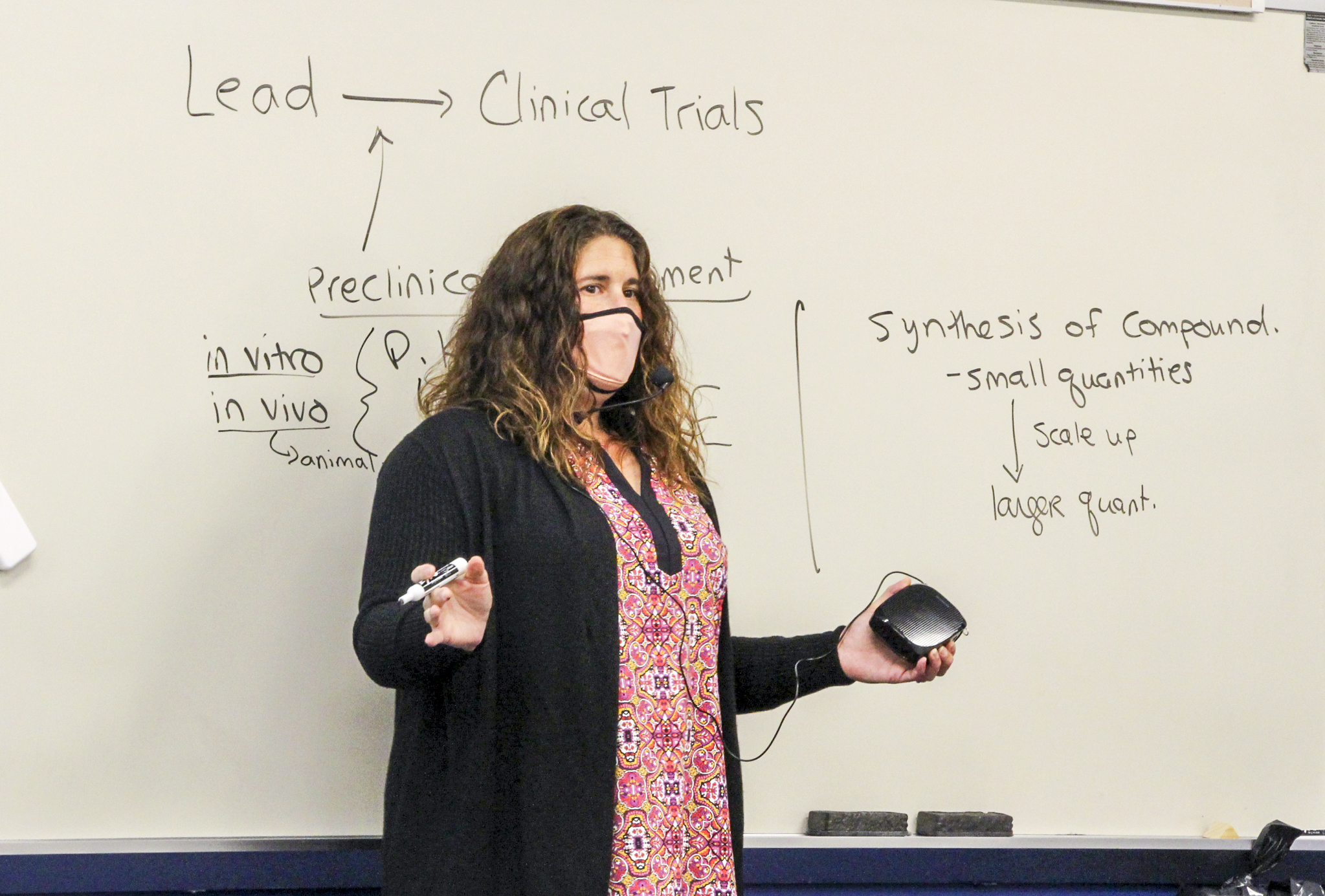CHM 355 students are learning medical and pharmaceutical science by following virology research and medical breakthroughs in real-time
New information around COVID-19 emerges daily as scientists around the world race toward vaccines and effective treatments for the virus.
An Elon biochemistry class is following and studying that science in real time this semester, digging into the science of medicine and the process of developing safe treatments for the public.
“Things are moving so quickly. It’s exciting that you can go to clinicaltrials.gov and see updates every day,” said Associate Professor of Chemistry Vickie Moore. “You can see all the new research that comes out. We’re learning more about the different aspects of COVID, about the virus and how it enters cells, and students see that there’s more to COVID-19 than case numbers and what we see in the media.”
Moore recontextualized CHM 355: Medicinal and Pharmaceutical Chemistry around COVID-19 this summer. She teaches the upper-level elective every other year, focused on teaching students scientific literacy around drug development and trials, the different types drugs and methods of delivery, and the molecular and chemical effects those drugs have.
On a recent Wednesday, Moore outlined the complex clinical trial process — the steps it takes to develop a drug, the subsequent phases of testing in animals and humans to determine its efficacy and safety, and mass manufacturing. She and students also discussed an early COVID-19 study misinterpreted by the media to mean the virus is more transmittable by surface contact than it actually is.
In past semesters, students studied a host of diseases and treatments to learn about the classes of drugs and their chemistries. Teaching through the lens of COVID-19 gives students the chance to explore groundbreaking science universally relevant to our daily lives in-the-moment — a rare and valuable opportunity Moore didn’t want to pass up.
Moore planned the course while working with a group of colleagues in the American Society for Biochemistry and Molecular Biology. Working from a range of institutions — from large, R1 universities, to small, private schools — across the US, they developed lessons and course modules around the virus. They’ve submitted their collective work to Course Source, a free resource for undergraduate life science professors, and a paper about their collaboration to an academic journal.
Moore has found recreating the course challenging and rewarding. Upper-level students are applying, integrating and extending what they have learned in other undergraduate classes to learn about pharmacology.
Studying the coronavirus during the pandemic — as scientific breakthroughs and research happen — gives students a unique perspective on current events. Moore also hopes the newfound knowledge will inspire and empower students in a difficult time.
“They can take this virus that has impacted their lives in so many negative ways and use it in a positive way to learn a new subject,” Moore said. “There is science happening around us all the time. That’s highlighted by the pandemic, but what they’re learning in their classes is always applicable to real-world issues. I hope they’ll take that scientific knowledge to their friends and families and be good scientific citizens with it.”



